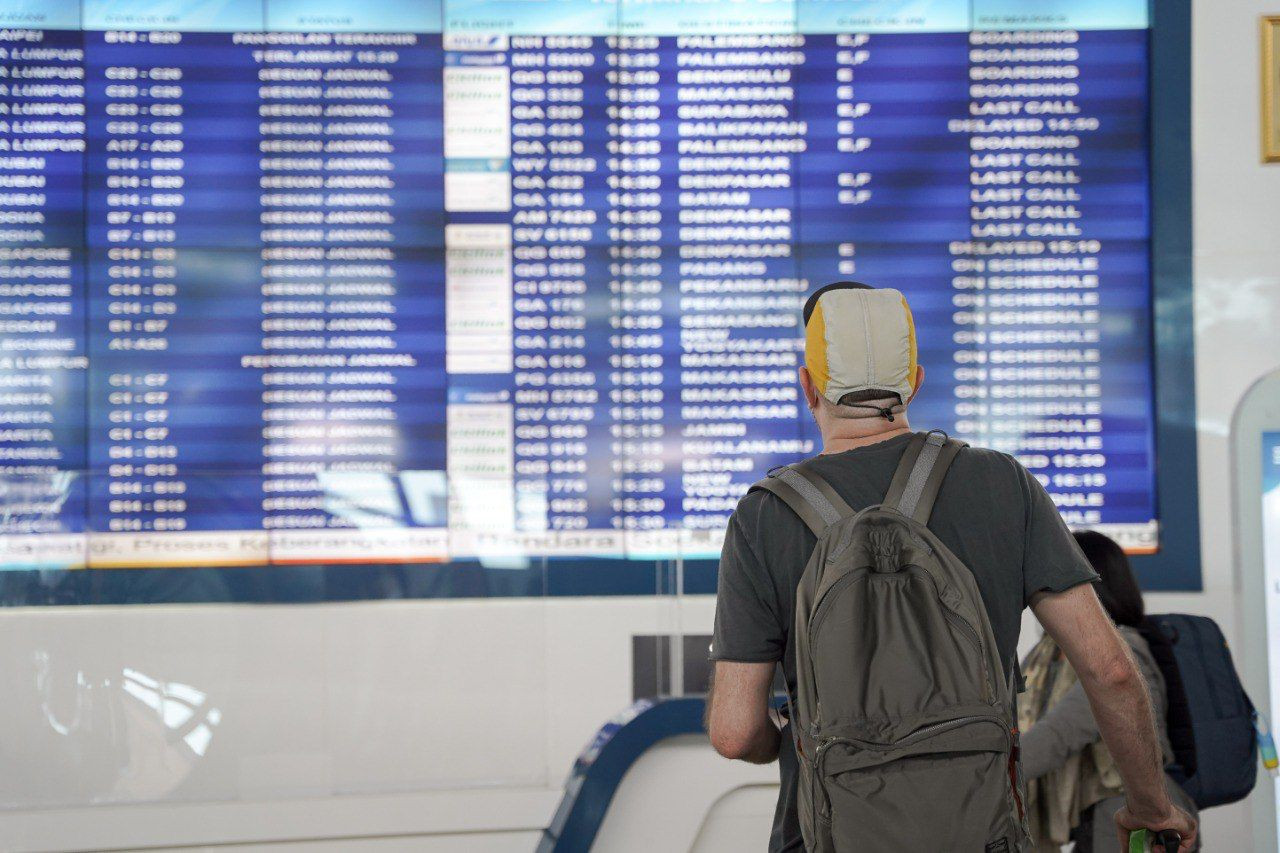RI eases curbs amid encouraging studies
Overseas tourists must arrive via Bali, Riau Islands.
Change Size

T
he government has lifted its travel ban on countries with severe COVID-19 transmission and reduced the length of mandatory quarantine to just a week, according to new regulations issued on Wednesday, allowing international arrivals to resume despite rising infection numbers.
Indonesia is keen to jumpstart its economic recovery in 2022 as it plays host to a yearlong series of international conferences and several big sporting events, even though the pandemic continues to loom large in the background.
As of Saturday, the nation recorded 1,054 new confirmed cases of transmission, the highest in more than three months.
But the national COVID-19 task force has issued two new regulations – a circular and a decree – outlining the government’s decision to scrap a travel ban previously imposed on 13 countries, while also requiring that all international travelers arrive at designated entry points and adhere to a seven-day quarantine.
Read also: Indonesia restricts entry for foreigners, extends quarantine
The decision was made final in a national coordination meeting on Jan. 10 and issued in a circular two days later.
Task force spokesperson Wiku Adisasmito suggested that the decision was made after considering that the Omicron strain of the coronavirus had already made its way to 150 of 195 countries as of Monday, and that upholding travel restrictions for some would only prove counterproductive. “If we decide to keep the list of restricted countries in place then that could complicate cross-border travel, which we still need in order to maintain national stability and spur the economic recovery,” he said in a statement on Friday.
That said, Wiku insisted that the lifting of the travel ban was accompanied by the enforcement of international arrivals through designated entry points for air, sea and land travel, as set out in the latest task force decree.
Corridor trade-off
The criteria for entry into Indonesia also remains strict, with little tolerance for unvaccinated or partly vaccinated people and fewer possibilities for quarantine exemptions.
Tourists from overseas, according to the circular, must arrive either through the airport in Bali or Riau Islands.
Official and business travel may be serviced through three international airports (Soekarno-Hatta in Banten, Juanda in East Java and Sam Ratulangi in North Sulawesi), seaports (Batam and Tanjung Pinang in Riau Islands and Nunukan, North Kalimantan) and land border posts (Aruk and Entikong in West Kalimantan and Motaain, East Nusa Tenggara), according to the new task force decree.
However, the mandatory quarantine period has been slashed to just seven days for all international arrivals, and exemptions for foreigners are made only if supplemented by a travel bubble arrangement and strict health protocols. Even then, all arrangements must be made seven days prior to the date of arrival. Heads of diplomatic missions and their family members may be allowed to self-isolate upon arrival, while everyone else must undergo centralized quarantine.
International arrivals found to be exposed to COVID-19 must undergo further quarantine in state-sanctioned facilities. Costs would be borne by the individual, regardless of whether they are foreigners or Indonesian nationals, with the exception of migrant workers, graduating students, officials returning from business trips and delegates of international festivals or sporting events.
Justified by science
Wiku said the new provisions were supported by recent studies from various countries.
The shorter mandatory quarantine period, for instance, is based on a 2021 study by Brandal et al that found the average incubation period for the Omicron variant was three days after exposure. An interim epidemiological study from Japan published this month further found that the viral infection would reach its peak between the third and sixth day after symptoms appear.
Wiku also cited recommendations by the United States’ Centers for Disease Control and Prevention (CDC) on shorter quarantine periods, after the science showed that the virus strain was most contagious one to two days before symptoms appear and two or three days after it.
Read also: Omicron threat prompts calls to review at-school learning
“Our principle for quarantine is to isolate infected people during the small window of time between exposure to the virus and the emergence of symptoms. That way, we can avoid local transmission,” he said.
“With layers of detection protocol, entry and exit tests and strict monitoring of the Omicron variant using S-gene target failure testing and whole genome sequencing, [...] the [current strategy] is effective.”
Masdalina Pane of the Indonesian Epidemiologists Association has criticized the government’s move to ease border restrictions at a time when the country continues to record locally transmitted cases of Omicron variant.
“This [increase in Omicron cases] have indicated failures [of stopping the virus] on our entry points,” said Masdalina.
She also pointed out that while early research had indicated COVID-19 infection from the Omicron variant causes milder symptoms, risks of hospitalizations from the transmissible variant remain high for certain parts of the population, such as the elderly and those with preexisting conditions.
Considering such risks, Masdalina added, a repeat of the Delta variant-fueled second wave, which overwhelmed the country’s hospitals, cannot be completely ruled out. (tjs/yrc)









